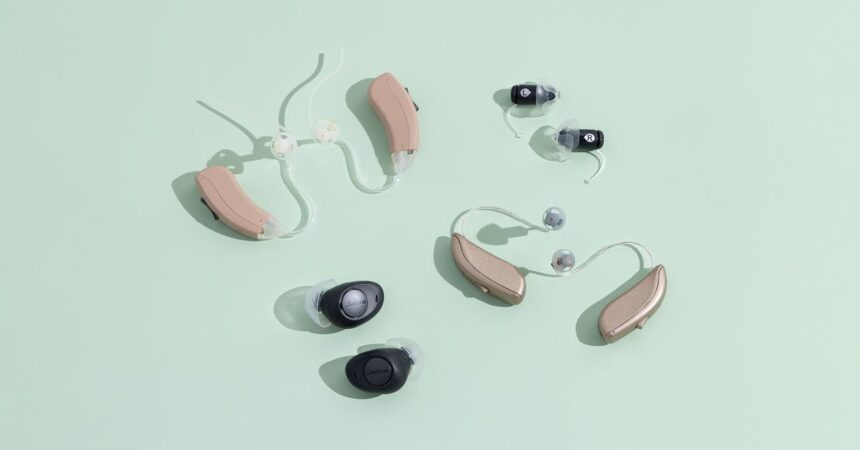The environment is becoming increasingly noisy, leading to a decline in hearing abilities for individuals of all ages.
Research from the National Park Service indicates that noise pollution levels in the US are doubling (and sometimes tripling) every 30 years. Consequently, a study in the National Library of Medicine estimated an increase in cases of hearing loss among Americans aged 20 and above from 44.1 million in 2020 to a projected 73.5 million by 2060. The World Health Organization even predicts that by 2050, over 700 million individuals globally will encounter disabling levels of hearing impairment.
Hearing loss is a prevalent issue that often goes unnoticed due to its gradual onset and adaptability of the brain to such changes.
A 2016 study from the National Academies of Sciences revealed that roughly one in four adults who self-reported good or excellent hearing actually had measurable hearing loss, showcasing how challenging it can be to detect.
Fortunately, after delays, over-the-counter hearing aids have finally entered the US market in 2022. These aids provide broader accessibility and more convenient solutions to address this undertreated health concern among American adults at a relatively lower cost.
If you suspect you may have mild to moderate hearing loss, here are some signs to look for and how over-the-counter hearing aids can help:

Indications of Hearing Loss
1. Difficulty Understanding Specific Words in Speech
If you struggle to comprehend certain words in conversation despite hearing them, you might have mild to moderate high-frequency hearing loss, which is the target of new over-the-counter hearing aids.
This type of hearing loss often affects the interpretation of consonants crucial for distinguishing words.
2. Challenges Following Conversations in Noisy Environments
Many individuals with mild to moderate hearing loss find it hard to engage in one-on-one conversations in a social setting due to background noise.
OTC hearing aids with situational sound modes can help reduce background noise, enhancing the clarity of conversations.
3. Perception of Others Mumbling
If you frequently ask people to repeat themselves, particularly children, high-frequency hearing loss may be the cause.
Those with hearing loss often find it easier to understand individuals with lower-pitched voices.
4. Need to Increase Volume on Devices
If you constantly max out volumes on devices like TVs, earbuds, or smartphones but still desire more sound, it could indicate early signs of hearing loss.
5. Occupational Noise Exposure
Professions with high noise levels, such as the military, farming, or orchestras, can contribute to hearing loss. Even exposure to seemingly gentle sounds, like those from musical instruments, can harm hearing.
Various industries have elevated rates of hearing loss, highlighting the importance of hearing protection.
6. Genetic Predisposition to Hearing Loss
Genetics play a role in hearing loss susceptibility. Individuals with a family history of hearing loss or conditions impacting inner ear function are more prone to hearing impairments.
7. Side Effects of Medications
Certain medications, including chemotherapy, list hearing loss as a potential side effect. Genetic markers can amplify the impact of drug-induced hearing loss.
If Hearing Loss is Suspected
Getting a hearing test is crucial to confirm hearing issues. The advent of OTC hearing aids provides more options for diagnosing hearing problems.
While online diagnostic tests are available, consulting a professional for a comprehensive hearing evaluation remains the gold standard.
Overcoming shame or stigma associated with hearing loss and seeking appropriate assistance is essential for a better quality of life.

Choosing and Adjusting to a Hearing Aid
Selecting an OTC hearing aid involves a trial-and-error process that may require time for adjustment. Consider the following tips:
- Evaluate your lifestyle to determine the ideal features in a hearing aid that suit your needs.
- Opt for devices with extended trial periods and warranties for adequate testing. Ensure you give yourself enough time to adjust to the aids.
- Be patient during the initial phase as the hearing aids may feel foreign. Adapting to their use can significantly improve your hearing experience.
- Seek customer support for assistance with any issues you may encounter with your hearing aids.
This content was revised by Adrienne Maxwell and Annemarie Conte.









